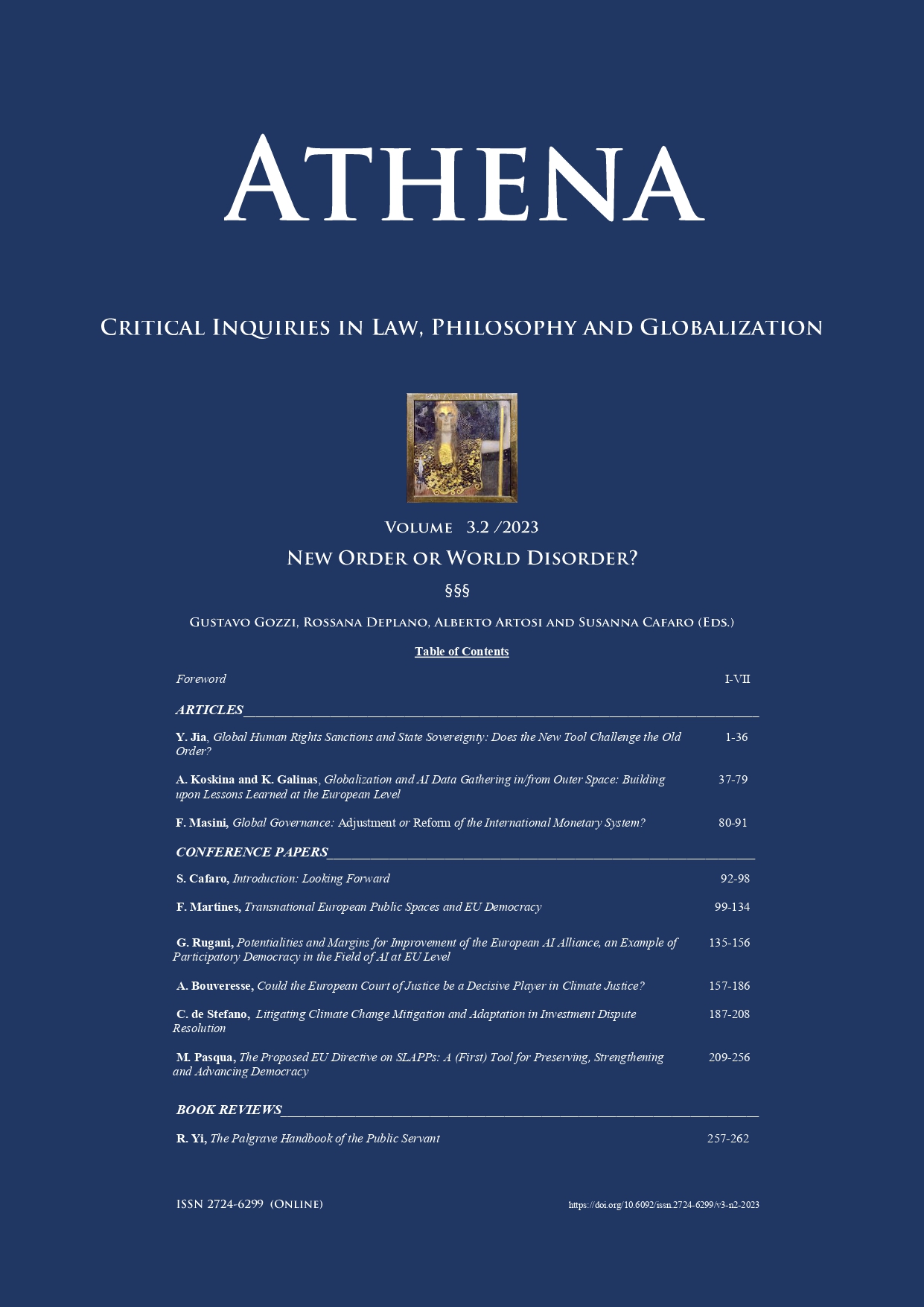Globalization and AI Data Gathering in/from Outer Space: Building upon Lessons Learned at the European Level
DOI:
https://doi.org/10.6092/issn.2724-6299/17445Keywords:
space law , artificial intelligence, satellite data collection, globalization of data, space policyAbstract
Based on the growing use of Artificial Intelligence (AI) ‒capable of gathering an unlimited (in amount and content) number of data, improving its functioning and simplifying tasks‒, humanity appears to be in the midst of a fourth technological revolution. When such activity is conducted in outer space i.e., by fifth generation observation satellites (Fu W. et al. 2020) using AI, capabilities are strongly optimized; however, the activity also seems to pose serious threats to privacy and to industrial or national secrets. As a response to this challenge, AI data gathering on Earth is subject to specific frameworks protecting privacy, both at the upstream and downstream ends, such as in the case of the EU. Unfortunately, the rules established therein do not seem to be wholly applicable to AI data gathering in/from space, mainly due to the fundamental freedom to conduct space activity. As a choice must be made between competing interests, this article aims at discussing some of the elements that should be considered, when debating on a legal framework potentially applying to space AI data gathering; to avoid conduct of said activity only to the benefit of a few stakeholders against the background of an emerging regime of techno-feudalism.
Downloads
Downloads
Published
How to Cite
Issue
Section
License
Copyright (c) 2023 Anthi Koskina, Konstantinos Galinas

This work is licensed under a Creative Commons Attribution 4.0 International License.





